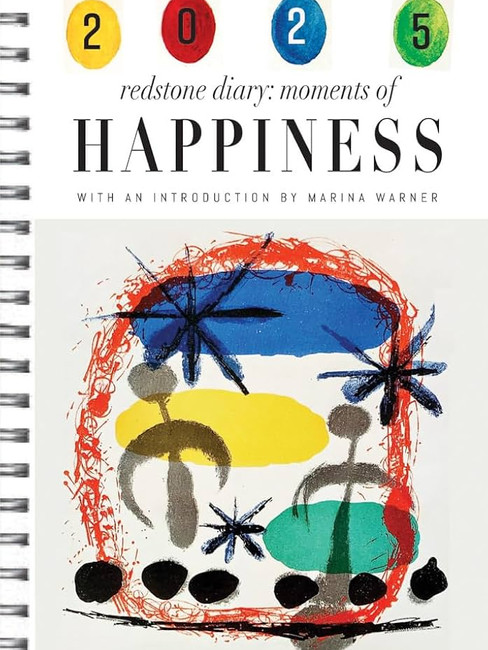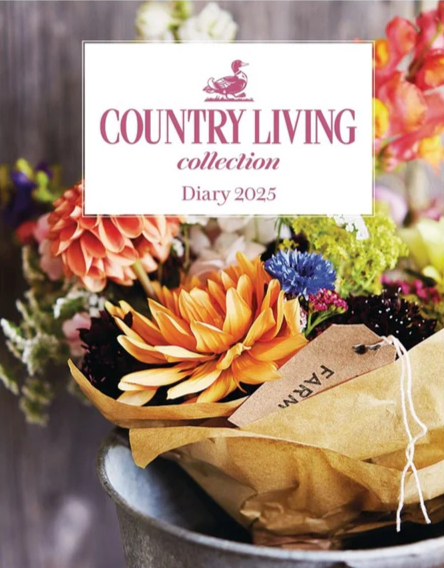From Mrs. Beeton to ...?
- Dec 18, 2024
- 7 min read
"Had people ever lived like this, my suburban mind wondered. Somewhere, might they still be doing so?" Julian Barnes

I shall begin this ramble with what started it - this week's pictures in my somewhat weird Redstone Diary. And I chose the quote above because it's by Julian Barnes who edited the text in this year's diary - of which there is none on this particular page. And I will come back to his comment.
First though just a few words about the diary. It's been a bit of a disappointment for me. I was aware that it was 'arty' and presumably striving to be a bit controversial, but this year's topic was Family and Julian Barnes - this year's text editor and introducer is one of my favourite authors. So why not I thought. It might provide inspiration for blogs. And every now and then it has - witness today. However, overall I don't think I will repeat the experience becase, also overall, the illustrations - paintings, photographs, cartoons - well all manner of illustration - are mostly pretty boring, and sometimes bordering on the offensive or at the very least, not attractive or even compelling.
Anyway I'm going very conservative next year with Country Living Collection. It will introduce a complete change to my Monday mornings, when I turn the page. Next year's Redstone topic is Moments of Happiness with text from Marina Warner. The two diaries are completely different and perhaps demonstrate my somewhat schizophrenic nature - half of me with intellectual pretensions and the other half locked in very middle suburban, mostly superficial concerns. Very Gemini - my star sign and on the cusp at that - so very confused. Not that I believe in any of that of course. The covers of next year's diaries perhaps say it all.

Enough of the diaries - back to Mrs. Beeton. My mother, like many mothers of my generation had a Mrs. Beeton's. I think it was the Book of Household Management, not just the Cookery book, because I do vaguely remember chapters on things like how to polish silver and fold napkins. I have no idea which edition it was, but I do remember that it was a big book - about the size of the one shown here, but I think it was more beige in colour. I also don't know whether my mother consulted it much, but I do remember my father making an appalling bread pudding which looked fantastic and tasted awful. I think my mother was not well and so my father made one his rare ventures into cooking. And I think this was the only cookbook that my mother had, so he must have used that. Who gave it to her I wonder? Was it a wedding gift from her mother?

It seems that those massive tomes that most of us of my generation remember were much larger than the original. The rights to the book were sold to Ward Lock after her death, and they produced multiple editions well into the twentieth century, with additions from here, there and everywhere, or else, just sections - like the Cookery part. For the original was indeed much more than a cookbook. Kathryn Hughes, who wrote a biography of Isabella Beeton, explains that in the mid Victorian century with the rise of the middle-class, and the coming of easier travel - railways and all that - daughters when married no longer lived just around the corner from their mothers:
"Where once you had been able to pop next door to ask mother's advice on a baby's cough or the best way to stone currants, now there was no one to consult. It was to fill this blind spot that a 21-year-old newly married woman, Isabella Beeton, decided to compile an encyclopaedia of domestic know-how, creating a paper and print version of Mother."
Julian Barnes puts the emphasis on efficiency and good management:
"Mrs Beeton resembles nothing so much as Bae-deker: helping make the kitchens run on time, smoothing your transit to Destination Dinner." Julian Barnes

It turns out, however, and this I did not know, that Isabella Beeton had a very sad life, and most ironically, in relation to motherhood. For from the first tragic death of her first child after a few weeks of life, she had several miscarriages, stillbirths and infant deaths. I do not know how many of these there were but she was survived by just two young boys, who were handed over to a neighbour because she was also estranged from her own mother, and it seems her husband was not up to it either. Indeed it is very possible that he had syphilis which was transferred to her, causing all those birthing problems.
I found a quotation from her that, having just read about all of that, which made me wonder whether she was actually talking about her husband rather than ducks - the nominal subject:
"It is to be regretted that domestication has seriously deteriorated the moral character of the duck. In a wild state, he is a faithful husband.....but no sooner is he domesticated than he becomes polygamous, and makes nothing of owning ten or a dozen wives at a time.
Ironically her tragically early death at the age of 28 was in childbirth. So very, very sad, but what a remarkable lady to have written such a seminal work.
"By representing "home" - the place we go to be loved, nurtured and fed - Mrs Beeton has become a kind of symbolic mother to us all. She is also, of course, the symbolic mother that we feel we ought to be." Kathryn Hughes

Julian Barnes, in his piece on Mrs. Beeton mentions that indeed his mother mostly consulted the book on things such "the household and medical notes ("Liniment for Unbroken Chilblains")" than the recipes - and I have a feeling my mother did too. Not the napkins though. Beef tea perhaps, and maybe lessons in economising. For Mrs. Beeton was very much into the cost of everything, and apparently often gave three different menus for dinner at different price ranges:
"Frugality and economy are virtues without which no household can prosper. Whatever the income, waste of all kinds should be most sternly repressed ... Economy and frugality must never, however, be allowed to degenerate into meanness." Isabella Beeton
Which is the final thing that struck me in my wanderings around the web today. It's a minor problem in our home. We both grew up in households which were not wealthy - definitely not wealthy - where every penny was counted - David more so than I. Moreover it was rationing time and so frugality was instilled at an early age, and has probably never left us. We both find it hard to spend vast amounts of money on unnecessary luxuries. Indeed our definition of unnecessary luxuries probably does not resemble others' definition of unnecessary luxury. I don't think we have degenerated into meanness, but I'm pretty sure we could splurge on some luxuries more than we do - more fine dining, more travel, indeed more expensive travel are perhaps at the top of those possibilities.
I possibly find it easier than David because I had a father who was in the merchant navy and who was therefore away for much of the time. When he came home he came loaded with gifts - dolls in costumes of the world for my sister and I, were one thing that I remember. He would really splurge on real luxuries of the time, such as a television, a lavish cocktail cabinet - remember them? and ultimately a car. Sugar daddy and we loved him for it - and his loving nature of course.

Even when he wasn't there we were given very small amounts of pocket money, which we would spend on sweets, and ice lollies. I remember a triangular ice lolly that cost threepence. And in the sweet shop, at the front of the counter there would have been an array of sweets that cost very small amounts of money. So you could buy something for a penny, even a farthing.
It is possible, even when you are very, very poor, to concoct some kind of treat every now and then - those simple desserts like bread and butter pudding - concocted from virtually nothing but absolutely delicious. But above all else we should remember that treats are only treats if they happen only occasionally. If they happen everyday then they are no longer a treat. And a treat is a wonderful soul booster - or as my grandmother used to say : "a little of what you fancy does you good."
Mrs. Beeton was also apparently criticised for plagiarism. Many of Eliza Acton's recipes were reproduced, and she may well have gathered others from elsewhere. But then, as I have written in that post Collectors or Creators, most, if not all recipe writers are, at the very least, building on the work of those who have gone before. Is it possible to be purely creative anymore. Mankind has been living too long. We have learnt too much from times long gone. The purely creative minds were probably in the brains of prehistoric man. Certainly with cooking it's mostly doing old things in new ways. And not a single word that I write - for example - is truly original. If I have a thought about something to write about I will 100% of the time find that somebody has written about it before. Hence the number of quotes in my posts.
Speaking of quotes I almost forgot Julian Barnes' quote at the top of the page, wondering whether people still lived like Isabella Beeton. He mentioned butler's pantries as one of the things he noted and indeed they seem to be coming back into fashion for the rich. My son who builds luxury massive houses maintains that these days they are a necessity. Maybe the monied upper middle class are indeed returning to those things that Mrs. Beeton was showing her fellow housewives to do - fancy napkin folding, table decorations, exotic foods and the servants - servants are coming back in - at least for things like cleaning, and washing and gardening. Did that kind of life ever go away? Probably not for the wealthy. And Mrs. Beeton was never speaking to the poor.
Poor Isabella Beeton. I wonder whether there were any treats in her life. Did she love her husband? Did he love her? Did he give her treats? I remember my husband - in the first year or so of our marriage would bring me some small silly treat when he came home from work every day. He still does quite often, when I think about it. Especially if it was a bargain!
YEARS GONE BY
December 18
2023 - Christmas is ... mince pies - I'm still looking for Robertson's fruit mince for this year. I've almost given up hope.
2021 - What to do with all that jam
2018 - Masses of mint
2017 - Summer is here - I admit it
2016 - Routine - good or bad?







All over by the age of 28! Mrs Isabella Beeton left her mark on the world in a very short space of time. Born in 1836 in London - one year after Queen Victoria came to the throne - she embodies what a Victorian was all about. 😂